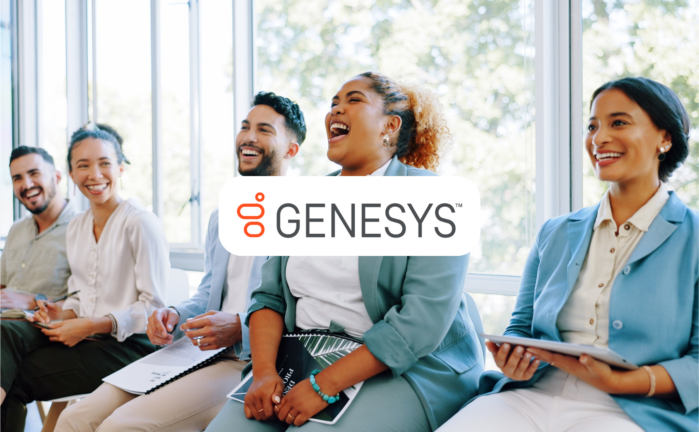Outwardly, it may appear that automation and personalization are at loggerheads with each other as core tenets of delivering exceptional customer experiences. Growth-driven enterprises are perpetually striving to find the sweet spot between automating the CX function to drive efficiencies and yet ensuring the interactions across mediums, and ensuing experiences remain personalized. The uphill task here is to synthesize the two so organizations feel empowered to realize personalization at scale.
Automating the CX function entails leveraging cutting-edge technologies like AI, Generative AI, and RPA to optimize customer interactions. Undeniably, most businesses have invested heavily in sophisticated CX platforms that help predict (with utmost precision) customers’ ever-evolving needs, wants, behaviors, and preferences. The outcome sought here is to design custom-built interactions and experiences using mechanized workflows, and therein lies the challenge that the CXOs must address diligently. Interacting with the end users through zillions of channels and touchpoints makes it imperative for businesses to harness the power of data and AI, however creating contextual, empathetic, and personalized customer experiences for each end-user must be the mainstay of each automation effort across the customer life cycle.
Automated interactions vs. human touch-decoding the customer journey
Delivering hyper-personalization through a robust customer journey mapping framework
Personalizing customer experiences remains the cornerstone for enhancing and optimizing customer journeys, which invariably helps organizations foster longstanding customer loyalty and boost bottom-line commercial outcomes. Therefore, a robust framework for mapping must be designed to enable an expansive data-backed digital journey map spanning multiple touchpoints including marketing, sales, and customer support. This remains pivotal to design personalized, contextually relevant and exceptional customer experiences. Solving for end-to-end needs of the customer shall essentially require CX leads to tap into all possible reservoirs of data across disparate systems and create a robust underlying architecture to support data assimilation, cleansing, standardization and governance. CX leads must distinctly identify opportunities for human interaction across each critical touchpoint, as against adopting a linear approach advocating on-the-fly automation across touchpoints.

Leveraging automation to deliver efficiency, with the precious human touch always in tow!
Automation essentially ensures speed, consistency and cost efficiencies. Swift and agile processes, reduced wait times, consistent adherence to pre-defined rules, handling of repetitive non-value adding tasks resulting in reduced human effort and operational costs are all sizeable benefits which no cost-conscious business can choose to disregard. Nevertheless, humanizing every mechanical interaction at the right intersect remains the key to foster compassion, empathy, room for nuanced judgment in complex scenarios, and to create a culture of trust and allegiance through candid human interactions.
Is hyper-personalization the true North Star in your CX pursuits?
McKinsey’s 2021 Next in Personalization research revealed that 71% of consumers expect companies to deliver personalized interactions, with 76% getting frustrated when this doesn’t happen. The research also showed that personalization drives performance and better customer outcomes, with fast-growing companies driving 40% more of their revenue from personalization than their slower-moving counterparts.
What do studies indicate?
86 percent of B2B customers expect companies to be well-informed about their personal information during service interactions. (Gartner)
59% of consumers believe businesses should use the data they collect about them to personalize their experiences. (Zendesk CX Trends Report 2023)
62% of consumers agree that personalized recommendations are better than general ones. (Zendesk CX Trends Report 2023)
71% of the B2B buyers say that most sales interactions feel transactional. (Salesforce State of the Connected Customer Report).
With advancements in data and AI, expressly generative AI, personalization is slated to advance to a level where CXOs must tailor all elements of digital interactions to how the end user wants it to flow, as against how the product and UX designers envisage ramming in more and more features into the menu. For both personal and virtual connects, the ability to decode the customer’s underlying needs upfront remains fundamental. As any business worth their client base would vouch for, discerning customers are always scouting for the most customized solution. Hence, a deep understanding of the evolving customer needs shall function as a critical base for strategy. A targeted data-driven personalization strategy founded on data and AI can shape personalized, proactive and even predictive but swift and agile real-time experiences.

Use cases from the real world
Healthcare
Healthcare organizations seeking to improve their provider-focused contact center operations and solving for operational challenges like high cost of operations and maintenance of multiple call centers leading to quality variances may leverage advanced cognitive AI-powered solutions to enhance efficiency, yet retain the human connection.
Pre-trained solutions designed to mimic human-like interactions through voice and chat can meet the twin objectives of handling massive call volumes, yet handling customers in a compassionate manner.
It is imperative to embed the following functionalities into the conversational AI solution:
- Next-generation natural language processing capability and contextual understanding
- Ability to switch seamlessly between voice and chat options to expedite information intake while the caller remains online
- Intuitive features for seamless call transfer to a human agent when requested.
The above solution has the potential to reduce cost per call by over 80%, reduce AHT by 75% and enhance positive feedback from providers by as much as 75%.
Insurance
For a typical claims call intake process, an intelligent conversational AI solution powered by next gen NLU and AI capabilities can offer the perfect combination of human and AI interaction. The solution can initiate the claim, gather responses to most of the questions and be intuitive enough to transfer the call seamlessly to an intake agent with all the captured information. This kind of a hybrid solution has the potential to enhance customer experience considerably by reducing wait time by 20 to 30%. Additionally, automation at the beginning of the process helps reduce manual effort and overall AHT by 30 to 40%.
Manufacturing
In conventional industries like Manufacturing, as against retail or healthcare, where digital adoption is sluggish and CX automation has just made inroads, generative AI powered conversational solutions can help transform the customer service function sizably, as against simply automating the same. A cognitive solution embedded with human-like conversation flows, and designed to gauge customer intent, respond fast, and deliver empathetic interactions can be deployed to deliver exceptional customer experiences. For large organizations with operations spanning across the globe, multi-lingual functionalities can be embedded and integrated across multiple interaction channels like voice, chat, virtual platforms etc. to reap optimum benefit. This approach ensures that key business outcomes like reduction in cost to serve, boosting NPS, enhancing CX, and ensuring operations scalability and resilience are successfully met.
Banking
For large banking enterprises with multiple centers servicing clients through disparate technologies, platforms, and tools, it is imperative to invest in automated yet intuitive CX solutions so as to design future-ready contact centers. Leveraging powerful insights on the customer base by leverage data and AI to understand their client journeys fully, and offer seamless self-servicing options must be top of their minds. As part of the transformation exercise, customer journeys can be redesigned so as deflect routine calls to low-cost self-service option and reduce call volumes significantly. A cognitive conversational AI solution can be deployed to further handle the more complex customer queries, understand the intent of the caller, deliver empathetic interactions through text and speech analysis, and also use discretion to transfer the call to a human agent at the right moment. Tailored CX solutions offered through a unified contact center platform delivering a consistent omnichannel experience have the potential to reduce call volumes by over 25%, and AHT by over 15%, in addition to driving operational efficiencies of cost, time and resources across the board.
Conclusion: efficiency and personalization are not mutually exclusive
The CX landscape is dynamically evolving, and organizations aim to purposefully blend automation and the human touch to create incomparable experiences that resonate with their customers. Enterprises must ensure that heightened automation does not cast a growing shadow over the very outcomes they set to achieve, those of realizing sustained value through delivering exceptional customer experiences, as indicated by key external indices like First Response Time, Customer Lifetime Value, Customer Satisfaction Score and Net Promoter Score. While excessive automation may dilute the brand voice to appear too robotic and impersonal, being too personal may overwhelm rather than delight the customer. By continuously deconstructing existing data on customer journeys and interactions for relevant insights into, and precise identification of automation and personalization opportunities, CX executives can ace their balancing game!
-
As an unwavering advocate for driving remarkable Customer Experience (CX) transformations, Neha Dutta brings over two decades of industry leadership across seven industries to the forefront of innovation. Her tenure has been marked by a consistent ability to reshape the way organizations engage with their customers, harnessing the power of CX and General AI to create transformative strategies. Leading CX transformation, Neha specializes in clarifying complex CX technologies into practical strategies, helping organizations move through digital spaces effectively. I focus on integrating technology with a human touch to improve interactions and deepen brand-customer relationships.









